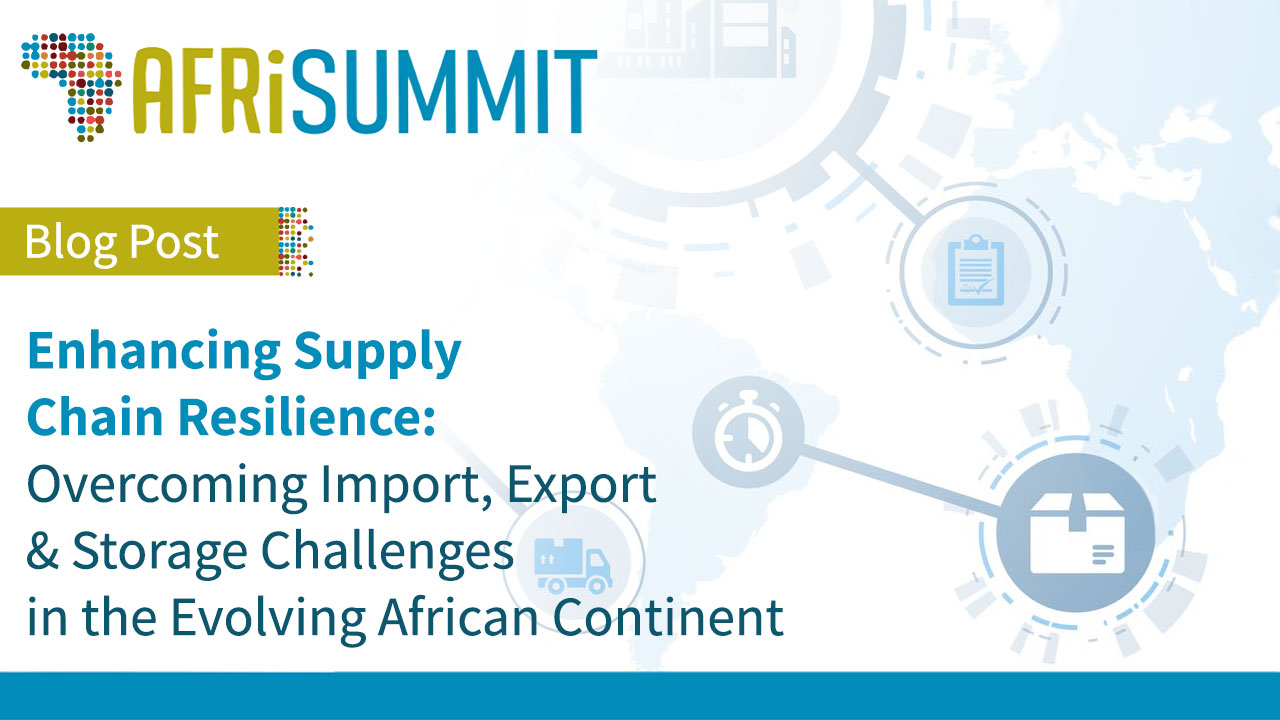Enhancing Supply Chain Resilience: Overcoming Import, Export, and Storage Challenges in the Evolving African Continent
The African continent has experienced significant economic growth and development over the years, making it an attractive market for international trade and investment. However, the diverse and complex challenges in supply chain management, import, export, and storage can pose obstacles for businesses seeking to tap into this lucrative market.
In this blog, we will explore the latest updates and developments in addressing these challenges while ensuring a seamless and efficient supply chain in Africa.
- Infrastructure Constraints
One of the primary challenges faced in the African supply chain is inadequate infrastructure. Poor road networks, limited access to ports, and inefficient transportation systems can lead to delays and disruptions in the import and export processes.
To overcome these hurdles, various African governments and private enterprises are investing in infrastructure development projects. These initiatives aim to improve connectivity and logistics, creating more efficient routes for the movement of goods and reducing supply chain bottlenecks.
- Trade Barriers and Tariffs
Navigating the complex web of trade barriers and tariffs within Africa can be perplexing. The continent comprises multiple countries, each with its unique trade regulations, customs procedures, and tariffs. To address this, regional trade agreements like the African Continental Free Trade Area (AfCFTA) have been established to promote intra-African trade and harmonize trade policies.
By reducing trade barriers, AfCFTA encourages seamless movement of goods across borders, fostering economic growth and boosting the competitiveness of African industries.
- Customs and Regulatory Compliance
Stringent customs procedures and inconsistent regulatory frameworks can lead to lengthy delays at border crossings. Businesses operating in Africa must understand and adhere to each country’s specific import and export requirements to ensure a smooth flow of goods.
Leveraging technology and employing regulatory experts can help streamline customs clearance processes, ensuring compliance and minimizing delays.
- Warehousing and Storage Challenges
Effective warehousing and storage are crucial elements of a robust supply chain. However, inadequate facilities, lack of modern storage infrastructure, and security concerns can hinder the efficient movement and storage of goods.
To overcome these challenges, investment in modern warehouse facilities and advanced inventory management systems is essential. Additionally, embracing cold chain logistics is vital for preserving the quality and safety of perishable goods throughout the supply chain.
- Digitalization and Technology Integration
The African continent is witnessing a digital revolution, and embracing technology is key to overcoming supply chain challenges. Implementing supply chain management software, track-and-trace systems, and IoT (Internet of Things) devices can provide real-time visibility into the movement of goods. This transparency enhances supply chain efficiency, minimizes inventory holding costs, and enables proactive decision-making.
- Addressing Political and Security Risks
Political instability and security concerns in some regions of Africa can disrupt supply chains and pose risks to businesses. Staying informed about geopolitical developments and seeking local partnerships with a deep understanding of the regional dynamics can help mitigate these risks. Moreover, insurance solutions tailored to address political and security risks can offer an added layer of protection for businesses operating in such regions.
To conclude, the African continent holds immense promise for businesses seeking to expand their global footprint. However, navigating the supply chain challenges related to import, export, and storage requires a proactive approach and strategic solutions.
By investing in infrastructure development, leveraging regional trade agreements, adopting digital technologies, and staying vigilant about political and security risks, businesses can unlock the true potential of the African market. As the continent continues to evolve, embracing these solutions will be crucial in building resilient and efficient supply chains in Africa.






Leave a Reply
Want to join the discussion?Feel free to contribute!